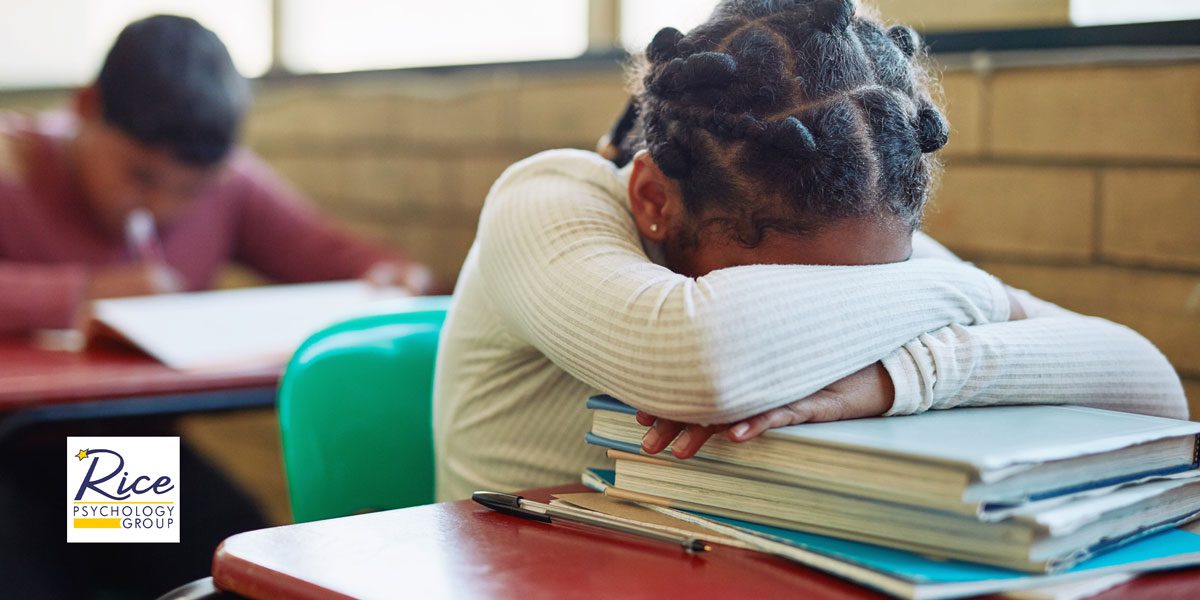Consider the following story as it relates to this week’s topic.
Recently, my husband and I noticed that our 9-year old daughter was having difficulty paying attention, and she’s rarely able to sit still. At school, her teacher notified us that she was falling behind in class and recommended setting up a meeting with the school psychologist because she believed she might have ADHD. After some testing, she was officially diagnosed. To say that I’m scared is an understatement. What does this mean? How will this affect her life? The school psychologist informed us about some new ADHD guidelines that might find more behavioral issues. I’m so grateful that her ADHD was identified, but this worries me.

The Centers for Disease Control and Prevention reports that 6.1 million children have been diagnosed with Attention Deficit Hyperactivity Disorder (ADHD) based on a national 2016 parent survey. That’s 9.4% of all children in the nation.
Needless to say, ADHD can’t and shouldn’t be ignored, which is one of the many reasons why the new clinical practice guidelines developed by the Society for Developmental and Behavioral Pediatrics (SDBP) are something every parent, teacher, and pediatrician should be familiar with. We’ll be highlighting these guidelines and what ADHD in the life of a child means.
What is ADHD?
ADHD is considered as the most common childhood neurodevelopmental disorder. It’s often seen with other coexisting conditions, which can complicate diagnosis and treatment. These conditions can include moderate-to-severe learning disabilities, intellectual disabilities, anxiety, depression, and other mental health problems.
Parents often face a great deal of misinformation when trying to learn about this disorder, such as these common myths:
- It’s only hyperactivity
- It can be ignored
- Kids eventually grow out of it
- It’s just laziness
An Improved Approach
The new SDBP guidelines, published in the Journal of Developmental and Behavioral Pediatrics, focuses on detecting more than just common ADHD symptoms. It additionally challenges earlier ADHD treatment recommendations by endorsing psychosocial treatment as a fundamental to improve functioning for children and teens, in addition to traditional medication. According to a Boston Children’s Hospital press release, some of the psychosocial interventions used to help improve life for kids with complex ADHD include:
- Parent education
- Organizational skills training
- Methods to improve appropriate peer interactions
- School services like 504 plans and special education-individualized education plans (IEPs)
- Classroom-based management tools like positive reinforcement methods, daily report cards, and posted expectations and consequences
According to William Barbaresi, MD, chief of the Division of Developmental Medicine at Boston Children’s Hospital and chair of the SDBP Complex ADHD Guidance Panel, “Psychosocial interventions are not consistently provided to patients in practice.” While the biggest reason for the lack of psychosocial support is the lack of evidence-based recommendations, the new guidelines aim to fix that with five key action statements.
These include:
- A comprehensive assessment followed by a multi-faceted treatment plan.
- Evaluations assessing other conditions and including a psychological assessment.
- Behavioral and educational interventions for all children with complex ADHD.
- Treatment of complex ADHD, addressing coexisting conditions, and looking beyond just reducing symptoms.
- Recognizing that ADHD is for life. Therefore, monitoring and treatment should be for life as well.
The SDBP guidelines took over three years to develop, but it hopes to be the “first step toward a more systematic approach to the diagnosis and treatment of children and adolescents with complex ADHD,” according to Barbaresi.
Set Up Your Appointment in Tampa Today
Our licensed psychologists and therapists in Tampa are here to make a difference in your child’s mental health through a personal, comprehensive approach. If you want to learn more about what we can do and which services we offer, contact us today.

